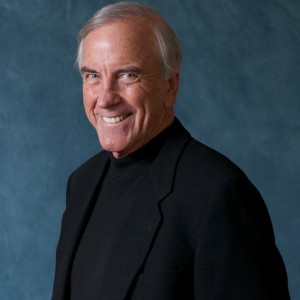
Jeff Campbell
Jeff Campbell’s experience is impressive and he certainly knows the hospitality, tourism, and management (HTM) industry. He was the chairman and CEO of Burger King for five years, the senior vice president of brand development at the Pepsi-Cola Company> for four years, and has been a Brinker executive resident for the past seven years. Campbell is not only an instructor in the SDSU HTM Master’s program; he is also the program’s director. We caught up with him and asked him a few questions on why this new program is special.
Tell me a bit about the HTM program.
The HTM program is unique kind of degree – it will be a real-world experience for students to learn skills and competencies needed to master and succeed at the next level of leadership. When I was earning a Master’s, I was taught by the vice chairman of an advertising agency in New York. It was the most intense learning experience I have had, and this is the kind of program we have built – intense learning from industry leaders and experts.
Why do HTM professionals need to further their education?
When people think about furthering their education they should think about it is as constructing an ever stronger package of skills that will put them in a position to compete more effectively and become industry leaders.
Will students gain hands-on experience?
Students will be exposed to real-world problems. If they haven’t experienced them yet, they will in this program. We created a laboratory environment, where students will make decisions on the fly and on their feet based on experiences of the industry experts, instructors, and faculty advisers.
What are the benefits of a hybrid (online, on-campus) program?
This program conforms to a working professional’s life. It conforms to all the challenges that individuals balance. Also, students can revisit material. They can fast forward through material that they know and linger on the things that they are grappling with.
What are the benefits of a program that is open to students worldwide?
This program is open to students worldwide and it’s open to people across each segment of the hospitality industry. There’s an enormous opportunity for cross-fertilization between different points of view from different countries, and different ways of approaching and solving problems across different segments. The unanticipated benefit is the exposure to other ideas.
What are the new trends in the HTM industry?
The big trend is that the industry has to completely reinvent the way it does business. So many companies struggle with managing change, how to generate innovation, and how to deal with shrinking resources but no shrinkage of objectives. And, throw in rapidly advancing technology into that mix and there’s a lot to know, learn, and manage.
Give me three adjectives that sum up this program.
Cutting edge, real world, and intense.
What kind of professional needs the HTM Edge?
The only kind of professional who needs the HTM Edge is one who wants to succeed. If they want to be a successful leader, they should take a look at this program.
Why did you as an instructor want to become involved in this program?
I get to share 40+ years of experience – some good and some not so good with the students. It’s experience that was gained the hard way often as a leader, and I will share the lessons of things to do, things not to do, and the ways of thinking about leading.